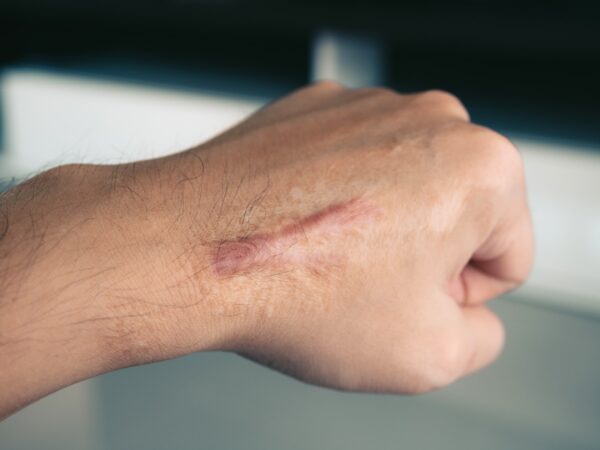Scars are the visible marks left after an injury, as mechanisms are activated in the body to maintain the structural and functional integrity of the damaged tissue.
Incomplete healing, wound breakdown or dehiscence, history of cystic acne as well as burn are causes that can lead to scars that create a bad aesthetic effect.
What are cheiloids?
The hypertrophic scars they are usually thick, appear shortly after the injury, and usually improve over time.
Keloid scars are scars that have escaped the boundaries of the original incision, and are larger in size than hypertrophic ones.
The cheiloids are usually swollen, red, itchy and due to the body's overreaction to the trauma. The size and depth of the wound, the thickness and color of your skin, and the direction of the scar in relation to the body's skin folds affect how well it heals. If an organism is predisposed to form keloids, then any deep injury and any invasive treatment has a high chance of developing a keloid.
Treatment of keloids
Some scars can be treated with the use of slow-acting steroids, which relieve symptoms such as itching and pulling in the area of the scar.
Injectable treatments
Injectable steroids are used in the scar area and reduce the formation of collagen fibers. Injections are given once a month. The number of repetitions depends on the wound's response to treatment.
Laser use is contraindicated and not recommended by our dermatology clinic.
Cryotherapy
Cryotherapy, also known as cryocoagulation or cryosurgery, refers to the use of cold to destroy and remove diseased tissue. It is a very popular, simple, effective and safe treatment method that the patient tolerates from an early age, without local anesthesia and which allows him to return to his duties without restrictions.
Ideal treatment for keloids is the combined treatment of injectable steroids and cryotherapy.

